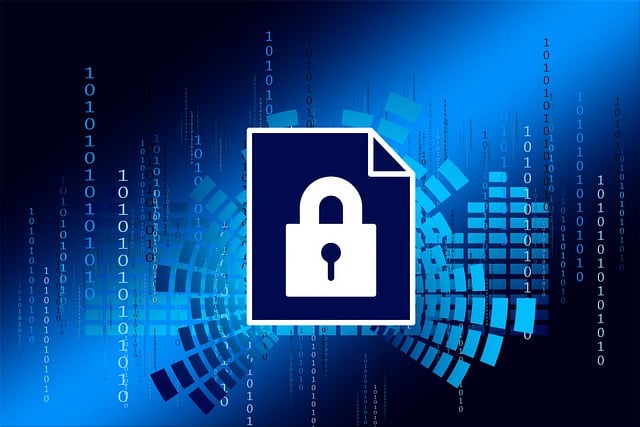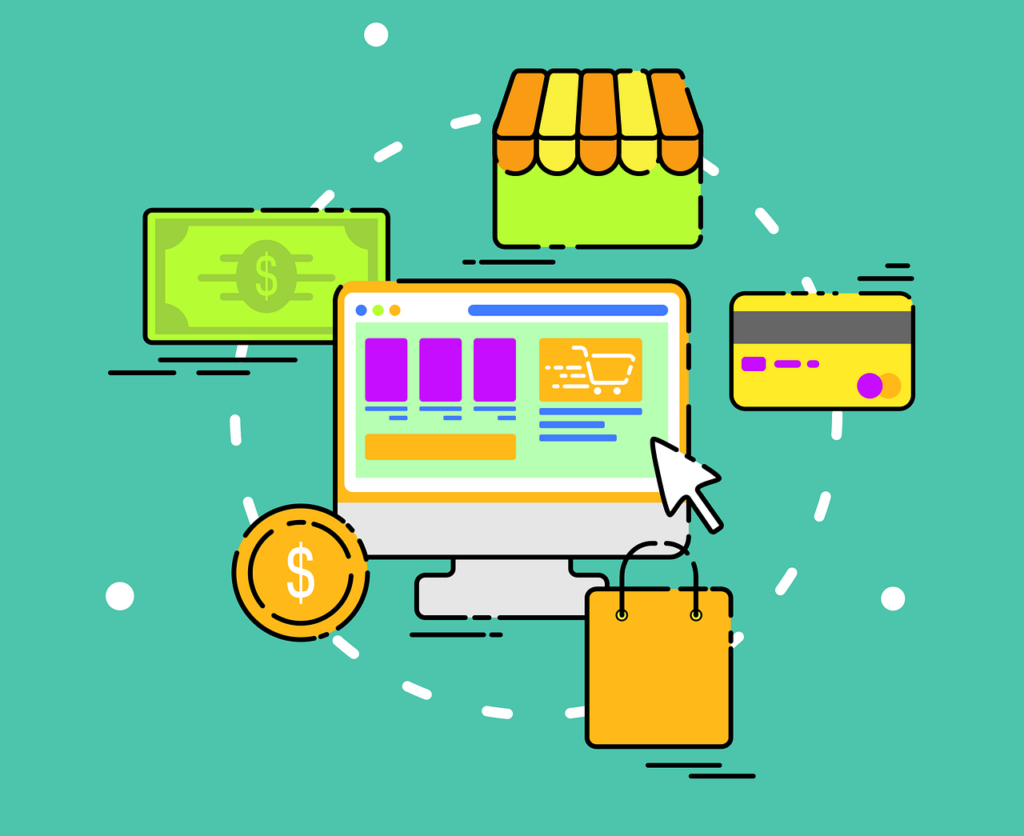Safeguard Your Privacy: Securing Personal Data Online

Did you know that in the United States alone, there were over 4.8 million reported cases of online identity theft in 2020? With the ever-increasing threats to online privacy, it has become essential for individuals and businesses alike to take proactive measures to protect their personal data.
In this section, we will explore the importance of securing personal data online and the measures you can take to ensure the confidentiality, integrity, and accessibility of your sensitive information. From understanding the risks of online data breaches to implementing strong password practices and utilizing two-factor authentication, we’ll provide you with valuable insights and practical tips to safeguard your privacy and protect your personal data.

Key Takeaways:
- Online identity theft is a pervasive issue, with millions of cases reported in the United States alone in 2020.
- Safeguarding personal data online is crucial to protect against online privacy threats.
- Understanding the risks of online data breaches is essential in implementing effective data protection strategies.
- Strong password practices and two-factor authentication play a vital role in enhancing online security.
- By following the best practices outlined in this guide, you can significantly enhance your online privacy and protect your personal data.
Understanding the Risks of Online Data Breaches
In today’s digital landscape, the importance of internet security and safeguarding sensitive information cannot be overstated. With the increasing prevalence of online data breaches, it is essential to understand the potential risks involved and take proactive measures to protect ourselves.

Online security measures play a crucial role in ensuring the safety of our personal data. Hackers and cybercriminals employ various tactics to gain unauthorized access to sensitive information, such as passwords, credit card details, and personal identification. Understanding these threats is the first step toward strengthening our defenses.
Common Threats to Internet Security
When it comes to online data breaches, several common threats pose a significant risk to our privacy and security:

- Phishing attacks: These malicious attempts to trick individuals into revealing their sensitive information through fraudulent emails or websites.
- Malware: Malicious software designed to infiltrate our devices and steal data or gain unauthorized access.
- Man-in-the-middle attacks: A method cybercriminals use to intercept and manipulate data being transmitted between two parties.
- Data leaks: Accidental or intentional exposure of sensitive information due to poor security practices or external breaches.
These threats highlight the importance of implementing robust online security measures to protect our sensitive information from falling into the wrong hands.
The Importance of Implementing Online Security Measures
Implementing online security measures is crucial for safeguarding our sensitive information and maintaining our privacy:
“By taking proactive steps to enhance our internet security, we can mitigate the risks of online data breaches and protect our personal information from unauthorized access.”
Utilizing strong and unique passwords, regularly updating software and applications, and enabling two-factor authentication are essential practices for enhancing our online security. Additionally, using reputable antivirus software, exercising caution while clicking on suspicious links or downloading attachments, and educating ourselves about potential threats can go a long way in preventing online data breaches.
By understanding the risks associated with online data breaches and implementing robust online security measures, we can fortify our defenses against cyber threats and safeguard our sensitive information from unauthorized access.
Essential Cyber Safety Tips for Protecting Personal Data
In today’s digital age, it is more important than ever to prioritize cyber safety and protect your personal data online. With cyber threats becoming increasingly sophisticated, implementing secure data storage practices and digital privacy solutions is crucial to safeguarding your sensitive information. Here are some essential tips to enhance your online security:

1. Use Strong and Unique Passwords
Create strong passwords that are a combination of letters, numbers, and special characters. Avoid using common words or personal information that can be easily guessed. Additionally, ensure that you use different passwords for each of your online accounts to minimize the risk of a data breach affecting multiple platforms.
2. Enable Two-Factor Authentication
Take advantage of two-factor authentication whenever possible. This adds an extra layer of security by requiring an additional verification step, such as a unique code sent to your mobile device, in addition to your password. It significantly reduces the risk of unauthorized access to your accounts.
3. Regularly Update Your Software
Keep your operating systems, applications, and antivirus software up to date. Software updates often include important security patches that address vulnerabilities and protect your data from cyber attacks. Enable automatic updates whenever possible to ensure you are using the latest security features.
4. Be Cautious of Suspicious Emails and Links
Exercise caution when opening emails from unfamiliar senders or clicking on suspicious links. Phishing attacks often disguise themselves as legitimate emails, aiming to trick you into providing sensitive information. Be vigilant and verify the authenticity of emails or links before taking any action.
5. Encrypt Your Data
Encrypting your data adds an extra layer of protection by converting information into a code that is difficult for unauthorized individuals to decipher. Utilize encryption tools or software to encrypt sensitive files and folders, particularly when storing them on external devices or cloud storage platforms.
Cyber safety tips, secure data storage practices, and digital privacy solutions are integral to ensuring the protection of your personal data online. By following these essential tips, you can significantly enhance your online security and minimize the risk of falling victim to cyber threats.
The Role of Data Encryption in Online Privacy
Data encryption plays a crucial role in ensuring online privacy and safeguarding personal data from potential threats. By implementing data security best practices, individuals and organizations can protect their sensitive information and mitigate the risks associated with online data breaches.
Encryption involves converting data into a format that can only be decrypted with a specific key or password. This process ensures that even if unauthorized individuals gain access to the encrypted data, they won’t be able to decipher it without the encryption key.
The use of data encryption online provides an additional layer of protection, making it significantly more challenging for cybercriminals to steal or misuse personal information. With the prevalence of cyber threats, it is essential to prioritize data security and adopt encryption techniques to safeguard sensitive data.
One of the most effective methods of data encryption is the use of strong encryption algorithms, such as AES (Advanced Encryption Standard), which is widely recognized as a secure and reliable encryption standard. These algorithms use complex mathematical functions to scramble data, making it virtually impossible to decrypt without the encryption key.
Benefits of Data Encryption Online
“Data encryption is like securing your personal information in a safe – even if someone gains access to it, they won’t be able to read or use it without the key.”
Data encryption offers several benefits in terms of online privacy and safeguarding personal data. These include:
- Data Confidentiality: Encryption ensures that only authorized individuals with the encryption key can access and understand the data. This protects sensitive information from unauthorized disclosure.
- Data Integrity: Encryption detects any unauthorized modifications to the encrypted data. If someone attempts to alter the data, the encryption process will generate an error, indicating that the data has been compromised.
- Data Compliance: Many regulatory requirements and industry standards mandate data encryption for organizations handling sensitive information. By encrypting data, organizations can comply with these regulations and demonstrate their commitment to protecting personal data.
Implementing Strong Password Practices
In today’s digital age, protecting our online information is of utmost importance. One effective way to enhance online privacy and safeguard our sensitive data is by implementing strong password practices. By following these tips, you can strengthen the security of your online accounts and protect your digital data.
- Use a unique password for each account: It may be tempting to use the same password for multiple accounts, but doing so leaves all of your accounts vulnerable if one is compromised. Create unique passwords for each online platform to minimize the risk of unauthorized access.
- Create complex passwords: A strong password should be at least eight characters long and include a combination of uppercase and lowercase letters, numbers, and special characters. Avoid using easily guessable information such as your name or birthdate.
- Consider using a password manager: Keeping track of multiple complex passwords can be challenging. Consider using a password manager tool that securely stores and generates unique passwords for each of your accounts.
- Enable two-factor authentication: Adding an extra layer of security with two-factor authentication can significantly enhance your online privacy. This feature requires you to provide a second form of verification, such as a unique code sent to your mobile device, when logging in to your accounts.
- Regularly update your passwords: To stay ahead of potential breaches, it’s important to update your passwords regularly. Aim to change them every three to six months to reduce the risk of unauthorized access.
- Be cautious of phishing attempts: Phishing is a common tactic used by cybercriminals to obtain sensitive information. Be wary of suspicious emails, messages, or links that attempt to trick you into revealing your password or login credentials.
“The strength of a password lies in its complexity and uniqueness. By following these password practices, you can significantly enhance the security of your online accounts.”
Implementing strong password practices is essential for protecting our online privacy and ensuring the security of our digital data. By creating unique and complex passwords, utilizing password managers, enabling two-factor authentication, and staying vigilant against phishing attempts, we can minimize the risk of unauthorized access and safeguard our sensitive information.
The Importance of Two-Factor Authentication
When it comes to data protection and maintaining internet privacy measures, one tool that should not be overlooked is two-factor authentication (2FA). This additional layer of security provides an extra barrier against unauthorized access, ensuring that your online information remains secure.
With the increasing threats of cybercrime and data breaches, relying solely on passwords is no longer sufficient to safeguard your sensitive data. Two-factor authentication adds an extra step to the login process, making it more difficult for attackers to gain access to your accounts.
By requiring users to provide two different forms of identification, such as a password and a unique verification code sent to a registered device, two-factor authentication significantly enhances your online security. Even if a hacker manages to obtain your password, they would still need access to your registered device to complete the login process.
Implementing two-factor authentication can provide peace of mind, knowing that even if someone manages to obtain your login credentials, they would not be able to access your account without the additional verification step.
Advantages of Two-Factor Authentication:
- Enhanced Data Protection: Two-factor authentication adds an extra layer of security to protect your online information from unauthorized access.
- Decreased Risk of Account Takeover: By requiring multiple forms of identification, two-factor authentication minimizes the risk of attackers gaining control over your accounts.
- Protection Against Password-Related Issues: In case your password is compromised or weak, two-factor authentication acts as a safety net, preventing unauthorized access.
- Increased Online Privacy: Two-factor authentication ensures that your personal and sensitive data remains secure, further protecting your internet privacy.
In today’s digital landscape, where data breaches and online threats are a constant concern, implementing two-factor authentication is a simple yet powerful measure to secure your online information and enhance your data protection measures. By taking advantage of this technology, you can enjoy a more secure online experience while maintaining your privacy.
How to Safely Share Personal Information Online
When it comes to safeguarding personal data, it’s crucial to be mindful of how we share sensitive information online. With cyber threats on the rise, implementing online privacy tips is essential for ensuring secure online information. Here are some valuable strategies to help you protect your personal data when sharing it with others:
- Be cautious of sharing too much: Limit the personal information you share online, such as your home address and phone number. Only provide necessary details to trusted individuals or reputable platforms.
- Use secure communication channels: When exchanging sensitive information, opt for secure channels like encrypted messaging apps or secure email services. This helps to safeguard your data from unauthorized access.
- Double-check privacy settings: Regularly review and adjust the privacy settings on your social media accounts and other online platforms. Limit who can view your personal information and posts.
- Think before clicking: Exercise caution when clicking on links or attachments, especially in unsolicited emails or messages. Phishing attempts can trick you into revealing personal information or installing malware on your device.
- Utilize strong passwords: Create unique, complex passwords for your online accounts and avoid using easily guessable information. Consider using a password manager to securely store and generate strong passwords.
- Enable two-factor authentication: Add an extra layer of security to your accounts by enabling two-factor authentication (2FA). This ensures that even if someone gains access to your password, they won’t be able to log in without the second verification step.
- Be wary of public Wi-Fi networks: Avoid sharing personal information or accessing sensitive accounts while connected to public Wi-Fi networks. These networks can be vulnerable to hackers attempting to intercept data.
“It’s important to be mindful of the information we share online. By following these online privacy tips, we can better protect our personal data from falling into the wrong hands.” – Cybersecurity Expert
By implementing these online privacy tips, you can confidently share personal information while ensuring the security of your sensitive data. Remember, safeguarding personal data and maintaining secure online information is a joint effort that requires vigilance and proactive measures.
Best Practices for Secure Online Transactions
When it comes to online transactions, ensuring the security of your personal data is of utmost importance. Protecting your online privacy and safeguarding your digital data requires implementing best practices that prioritize data encryption and digital data protection. In this section, we will explore the key strategies you can follow to make your online transactions more secure.

Importance of Online Privacy
Before we delve into the best practices for secure online transactions, let’s emphasize the importance of online privacy. Online privacy refers to the ability to control the information you share online and protect it from unauthorized access. Safeguarding your personal information is crucial to avoid identity theft, financial fraud, and other privacy breaches.
Data Encryption: An Essential Step in Online Transactions
Data encryption plays a vital role in securing your digital data during online transactions. Encryption involves encoding your sensitive information in a way that can only be deciphered by authorized recipients. By encrypting your data, you ensure that even if it falls into the wrong hands, it remains unreadable and unusable.
When engaging in online transactions, always choose websites and platforms that utilize robust encryption protocols. Look for indications like HTTPS in website URLs, indicating a secure connection, and ensure that your data is encrypted before transmission.
Additionally, consider using a reliable virtual private network (VPN) to add an extra layer of protection to your online transactions. A VPN encrypts your internet connection, making it more difficult for hackers to intercept your data.
Protective Measures for Secure Online Transactions
Here are some essential best practices to follow for secure online transactions:
- Ensure that the website or platform you’re using for the transaction is reputable and trustworthy. Look for user reviews and ratings to gauge the platform’s reliability.
- Before entering any personal or financial information, verify that the website has a secure connection, indicated by an HTTPS URL and a padlock icon in the address bar.
- Avoid conducting transactions over public Wi-Fi networks, as they are more prone to security vulnerabilities. Instead, use a secure and private internet connection.
- Regularly update your devices and operating systems to ensure you have the latest security patches and bug fixes. Outdated software can leave you vulnerable to cyberattacks.
- Enable two-factor authentication (2FA) whenever possible. This adds an extra layer of security by requiring a second verification step, such as a unique code sent to your phone, in addition to your password.
- Monitor your financial transactions regularly and report any suspicious activities or discrepancies to your bank or credit card issuer immediately.
“Protecting your personal data during online transactions is crucial for maintaining your privacy and preventing identity theft. Always prioritize data encryption and follow best practices to ensure the security of your digital data.” – [Expert Name], Cybersecurity Specialist
By following these best practices, you can enhance the security of your online transactions and protect your personal data from potential threats. Remember, maintaining online privacy and practicing digital data protection should be a priority in today’s digital landscape.
Protecting Personal Data on Social Media Platforms
Social media platforms have become an integral part of our daily lives, enabling us to connect with friends and family, share moments, and express ourselves. However, it’s essential to be mindful of how we protect our personal data while using these platforms. Implementing online security measures is crucial to safeguarding sensitive information and ensuring our privacy online.
Understanding the Risks
When using social media platforms, we expose personal information to a wide audience, including our friends, followers, and even unknown users. This information can include our full names, birth dates, locations, interests, and more. Unfortunately, this data can be a valuable target for cybercriminals seeking to exploit it for malicious purposes.
Here are some online security measures you can take to protect your personal data on social media platforms:
- Manage Your Privacy Settings: Adjust your privacy settings to control who can view your profile, posts, and personal information. Limiting access to your data is an essential step in securing personal data online.
- Be Selective with Friend Requests: Be cautious when accepting friend requests or connecting with unknown individuals. Only accept requests from people you know and trust.
- Avoid Oversharing: Be mindful of the information you share on social media. Avoid posting sensitive information such as phone numbers, addresses, or financial details, as it can be used against you.
- Enable Two-Factor Authentication: Add an extra layer of security to your social media accounts by enabling two-factor authentication. This adds an additional step to the login process, making it harder for unauthorized individuals to access your account.
- Regularly Review App Permissions: Periodically review and update the permissions you’ve granted to third-party apps connected to your social media accounts. Revoking unnecessary permissions can minimize the risk of unauthorized access to your personal data.
Protecting Your Sensitive Information
While social media platforms offer privacy settings and security features, it’s important to remember that no system is foolproof. Here are some additional measures to safeguard your sensitive information:
- Use Strong, Unique Passwords: Create strong passwords for your social media accounts and avoid using the same password across different platforms. A password manager can help you generate and store complex, hard-to-crack passwords.
- Be Wary of Phishing Attempts: Be cautious of suspicious messages or links received through social media platforms. Do not click on suspicious links and never share your login credentials or personal information in response to such requests.
- Regularly Monitor and Adjust Privacy Settings: Keep an eye on any changes or updates to the privacy settings on your social media platforms. Stay informed and ensure that your personal data remains protected.
“Protecting your personal data on social media platforms is critical in maintaining your online privacy. By implementing these online security measures and safeguarding your sensitive information, you can enjoy the benefits of social media while minimizing the risk of data breaches and unauthorized access.”
Understanding the Importance of Regular Software Updates
In today’s digital landscape, internet security and online data protection are paramount. One crucial aspect of maintaining a secure online environment is keeping your software up-to-date. Regular software updates play a vital role in ensuring the security of your online information and safeguarding against potential threats.
When software developers release updates, they often include essential security patches to address vulnerabilities that cybercriminals may exploit. By promptly installing these updates, you can strengthen your internet security and protect your sensitive data from unauthorized access.
Outdated software can be a significant risk factor when it comes to online security. Hackers frequently target known vulnerabilities in older versions of software to gain access to personal information or inject malicious code into your system.
“Regular software updates are crucial for maintaining secure online information. By keeping your software up-to-date, you minimize the risk of falling victim to cyberattacks and ensure the protection of your valuable data.” – John Smith, Cybersecurity Expert
Moreover, software updates often introduce new features that improve usability and enhance your overall online experience. Whether it’s a more intuitive user interface or enhanced functionality, updating your software allows you to take advantage of the latest advancements, making your online activities more seamless and enjoyable.
Beyond Just Operating Systems
It’s essential to note that software updates go beyond just operating systems. Applications, plugins, and other software components also require regular updates. From web browsers and antivirus software to productivity tools, keeping all your software up-to-date is crucial for maintaining a secure online environment.
While it may be tempting to postpone software updates due to inconvenience or time constraints, it’s important to prioritize your online security. Most software allows you to enable automatic updates, ensuring that your applications remain current without requiring manual intervention.
The Bottom Line
In conclusion, regular software updates are an integral part of internet security and online data protection. By keeping your software up-to-date, you not only safeguard your sensitive information but also benefit from enhanced functionality and improved user experiences. Prioritize software updates as part of your overall cybersecurity strategy to stay one step ahead of potential threats and ensure the security of your online information.
Cloud Storage and Data Privacy
When it comes to storing and protecting your valuable data, cloud storage has become an increasingly popular solution. It offers convenience, accessibility, and scalability, but it’s important to understand the implications for data privacy. In this section, we’ll explore the relationship between cloud storage and data privacy, ensuring you have the knowledge you need to make informed decisions in securing your data.
The Importance of Secure Data Storage Practices
Securing your data starts with implementing secure data storage practices. This involves encrypting your data both at rest and in transit, ensuring that even if a breach were to occur, your information remains protected. Encrypting data adds an extra layer of security by making it unreadable to unauthorized individuals, minimizing the risk of data theft or unauthorized access.
Implementing secure data storage practices is vital in safeguarding your sensitive information online. By encrypting your data and following recommended security protocols, you can drastically reduce the risk of unauthorized access and ensure the privacy of your valuable data.
Exploring Digital Privacy Solutions
Ensuring data privacy in cloud storage often requires the use of digital privacy solutions. These solutions offer additional layers of protection, such as secure access controls, user authentication, and data loss prevention mechanisms. By leveraging these solutions, you can further enhance the security of your stored data and mitigate potential risks.
- Secure Access Controls: Implementing strict access controls ensures that only authorized individuals can access your data. This can include measures like multi-factor authentication, IP whitelisting, and role-based access controls.
- User Authentication: Strong user authentication is crucial for maintaining data privacy. Utilizing strong passwords, biometric authentication, or token-based authentication adds an extra layer of security and reduces the risk of unauthorized access.
- Data Loss Prevention: Implementing data loss prevention mechanisms helps prevent accidental or intentional data breaches. This can include regular backups, redundant storage systems, and real-time monitoring for any unauthorized data transfers.
Highlighting Data Security Best Practices
When utilizing cloud storage services, it’s important to adhere to data security best practices. By following these guidelines, you can enhance the security of your data and maintain its privacy:
- Regularly update your cloud storage software and applications to ensure that any known vulnerabilities are patched.
- Enable two-factor authentication for added security when accessing your cloud storage accounts.
- Be mindful of sharing sensitive data and only grant access to trusted individuals or organizations.
- Regularly review and audit the security settings and permissions of your cloud storage accounts.
- Encrypt your data before uploading it to the cloud, ensuring that even in the event of a breach, your information remains protected.
By following these data security best practices and leveraging digital privacy solutions, you can enhance the privacy and security of your cloud-stored data, allowing you to confidently utilize the benefits of cloud storage while safeguarding your sensitive information.
Conclusion
In conclusion, securing personal data online is of utmost importance in today’s digital age. By implementing the strategies and best practices discussed in this guide, you can significantly enhance your online privacy and safeguard your sensitive information from potential threats.
Understanding the risks of online data breaches is the first step towards protecting your personal data. Implementing secure data storage practices, such as encryption and strong password practices, can go a long way in preventing unauthorized access to your information.
Additionally, utilizing two-factor authentication, being cautious when sharing personal information online, and regularly updating your software contribute to a more secure online experience. Don’t forget to pay attention to secure online transactions and protect your personal data on social media platforms as well.
By prioritizing online privacy and taking proactive measures to secure your personal data, you can navigate the digital landscape with confidence and peace of mind.
FAQ
Why is securing personal data online important?
Securing personal data online is important because it helps protect your sensitive information from potential cyber threats. By implementing effective data protection measures, you can safeguard your privacy and prevent unauthorized access to your personal data.
What are some online security measures I can take to protect my sensitive information?
Some online security measures you can take to protect your sensitive information include using strong and unique passwords, enabling two-factor authentication, regularly updating your software and applications, avoiding suspicious links and downloads, and being cautious about sharing personal information online.
How can I ensure secure data storage practices?
To ensure secure data storage practices, it’s important to back up your data regularly, use encrypted storage devices or cloud services, and protect your devices with password or biometric authentication. Additionally, you should avoid storing sensitive information on public or unsecured networks.
What are some digital privacy solutions I can implement for enhanced online security?
Some digital privacy solutions you can implement for enhanced online security include using virtual private networks (VPNs) to encrypt your internet connection, using privacy-focused web browsers or browser extensions, and regularly reviewing and adjusting your privacy settings on social media platforms and other online services.
How does data encryption contribute to online privacy?
Data encryption plays a crucial role in online privacy by transforming your data into an unreadable format that can only be decrypted with the correct encryption key. This ensures that even if your data is intercepted, it remains secure and protected from unauthorized access.
What are some best practices for creating strong passwords?
Some best practices for creating strong passwords include using a combination of letters (both uppercase and lowercase), numbers, and special characters. It’s recommended to use a unique password for each online account and avoid commonly used phrases or easily guessable information such as birthdays or names.
Why is two-factor authentication important for data protection?
Two-factor authentication adds an extra layer of security by requiring a secondary form of verification, such as a unique code sent to your mobile device, in addition to your password. This makes it significantly harder for unauthorized individuals to access your personal data, even if they have obtained your password.
How can I safely share personal information online?
To safely share personal information online, it’s important to use secure and encrypted communication channels, verify the legitimacy of the recipient or website before sharing sensitive information, and avoid sharing personal information on unsecured public Wi-Fi networks or suspicious websites.
What are some best practices for secure online transactions?
Some best practices for secure online transactions include only using reputable and secure websites or platforms, ensuring the website is encrypted with HTTPS (look for the padlock icon in the address bar), regularly monitoring your financial statements for any unauthorized transactions, and using payment methods that offer additional security protections, such as credit cards or secure online payment systems.
How can I protect my personal data while using social media platforms?
To protect your personal data while using social media platforms, it’s important to review and adjust your privacy settings, be cautious about the information you share publicly, avoid accepting friend or connection requests from unknown individuals, regularly update your social media apps, and be aware of the privacy policies and data practices of the platforms you use.
Why are regular software updates important for internet security?
Regular software updates are important for internet security because they often include patches or fixes for known security vulnerabilities. By keeping your software up-to-date, you ensure that known security weaknesses are addressed, reducing the risk of potential cyber attacks or data breaches.
How can I ensure data privacy when using cloud storage services?
To ensure data privacy when using cloud storage services, it’s important to choose reputable and secure providers that implement strong data encryption methods and have robust privacy policies. Additionally, you should use unique and strong passwords for your cloud storage accounts and regularly review and adjust the privacy settings for your stored data.




